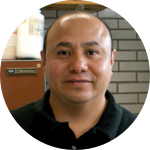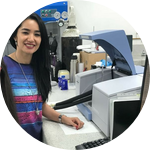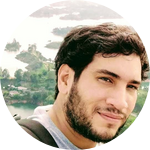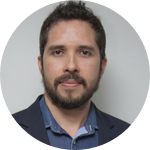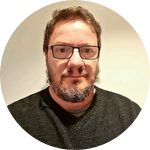About This Project
The skin is an important organ for the protection of the human body, however, it is not exempt from exposure to harmful agents that threaten its integrity. The incidence of burn wounds in the U.S. is 8.2 million people with a cost of care between $28.1 billion and $96.8 billion.
There are drugs obtained from plant extracts with low specificity and risk of contamination, whereas peptides have a dual function, as antimicrobials and promote repair. We want to find new wound-healing peptides.
Ask the Scientists
Join The DiscussionWhat is the context of this research?
Due to the disruption of innate defense mechanisms,skin wounds are a serious risk factor for opportunistic infections, bacteremia, and sepsis. The treatment of skin wounds is a challenging task, especially considering that the available treatments have a limited spectrum of action on cellular and molecular mechanisms involved in tissue repair. Discovering natural molecules that can enhance wound healing is a promising strategy for developing more efficient healing drugs. Due to its antimicrobial, animal peptides are suggested as promising agents for new therapeutic approaches in skin wound treatment.
What is the significance of this project?
Through this project we will implement a new method to find and predict peptides with dual antibacterial-wound healing activity without sacrificing animals, through in silico studies with bioinformatics and artificial intelligence.
The results of this project will help the discovery of new drugs as an alternative for the treatment of difficult-to-treat skin wounds such as diabetes, circulatory disorders and infections with multidrug-resistant strains to conventional antibiotics.
What are the goals of the project?
Our main objective is to identify, select, synthesize and evaluate novel peptides with wound healing and antibacterial activity from amphibian skin transcriptomes reported in genomic databases. We will use the transcriptomes to perform in silico bioprospecting with comparisons to peptide databases and selecting candidates through physicochemical characteristics such as net charge, hydrophobicity, and penetrability. We will then synthesize the candidates and evaluate their activity with in vitro and in silico methods using antimicrobial tests, scratching assay, docking, and molecular dynamics.
Budget
This budget will be important to synthesize the best peptides candidates and evaluate both their antibacterial and wound healing activity. The plastic material will be necessary for the evaluation of the activities, which includes 96 well culture plates, Petri dishes for the antibacterial tests, cell culture plates for the wound healing test, and micropipette tips and plastic tubes. Peptide synthesis is necessary for subsequent biological activity tests. Finally, activity evaluation is important to determine the healing activity of the peptides, therefore, the $1000 will be used to purchase the culture media.
Endorsed by
 Project Timeline
Project Timeline
In April 2022, the process of screening for candidate sequences in the amphibian and reptile skin transcriptome will be initiated. From June we will start another filter for the selection of the best candidates for synthesis through in silico analysis with tools such as molecular dynamics and molecular docking. The best candidates will be selected for synthesis and evaluation of antibacterial and wound healing activity.
Apr 01, 2022
Start of project and request for materials
Apr 21, 2022
Project Launched
May 01, 2022
In silico bioprospecting (bioinformatic, transcriptomic)
Jun 01, 2022
Peptide selection with artificial intelligence (machine learning algorithms)
Jul 01, 2022
In silico assays (docking and molecular dynamics)
Meet the Team
Affiliates
Affiliates
Affiliates
Yamil Liscano
I am a Ph.D. in biotechnology, I have been working with the design of peptides with computational tools and artificial intelligence. I am a professor at the faculty of the health of the university Santiago de Cali.
I have been passionate about research since I was very young. I ended up developing an interest in frog skin peptides in my master's degree. I realized the potential of these peptides and continue to try to find alternatives to fight cancer, antimicrobial resistance, and improve people's health. Now as a researcher I am encouraging my students to take part in projects with a social, economic, and scientific impact. Thanks to this platform I have the perfect opportunity to continue researching these interesting topics.
Jose Fernando Oñate Garzón
I am a PhD in Biology, I have been working with the design, synthesis, and purification of antimicrobial peptides. In addition, I have developed nanoformulations to improve the stability and performance of peptides in harsh environments. Currently, I am an associate professor at the Basic Sciences Department of the University Santiago de Cali.
During these 15 years of research, in each day of laboratory work, new surprises about peptides and their properties are revealed, which generate a need to continue looking for answers. This purpose has gradually created a school based on the training of students with critical ability to solve problems of a natural order and develop high-level research to respond to health problems of global interest.
Valeria Saavedra Barrios
I'm a medical student, actually coursing 4th semester. Since ever I was a child, I have always been so fascinated by laboratories, research of animals, space, and the human body.
Juan Carlos Restrepo Lopez
I am a doctor passionate about scientific research and the challenges that can generate innovation in the field of health.
Most of my professional life has been dedicated to difficult diagnosis, harmonization of clinical and diagnostic processes and of course, to experimental design.
Translational medicine has changed my professional life, generating great interest, based on the application of technologies such as AI from the context of Precision Medicine, Applied Pharmacology and recently Bioprospecting.
Lab Notes
Nothing posted yet.
Project Backers
- 1Backers
- 1%Funded
- $5Total Donations
- $5.00Average Donation
